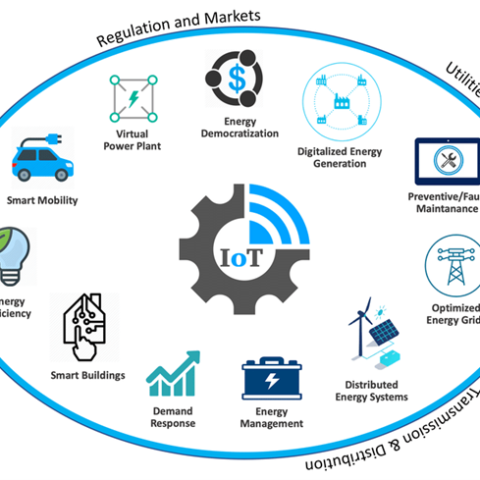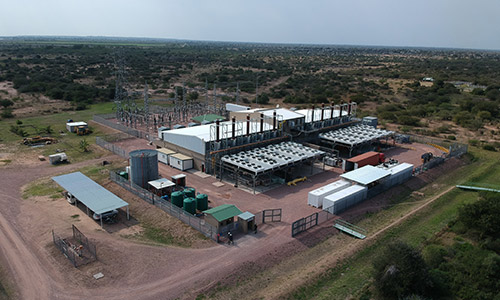Portugal is one of the warmest and sunniest countries in Europe, making it a prime candidate for solar photovoltaic (PV) installations.
In fact, the country enjoys between 2300 and 3200 hours of sunshine a year, including 4 - 6 hours a day even in the winter, thanks to its largely Mediterranean climate.
There’s also the money and political will to back solar PV projects: as an EU member, Portugal has embraced the Union’s renewable energy directives, targets and rules.
The country has signed the Paris Agreement. The government is committed to support the market’s development.
One key goal is to ensure decarbonization goals are met in the most cost-effective manner: the country seeks to be climate neutral by 2050 and to cover 80% of its power consumption with renewables by 2030.
So far good progress has been made, a welcome development considering the extreme fossil fuel supply chain pressures arising from the Ukraine conflict.
At the end of June 2021, Portugal’s installed capacity of electric energy from renewable sources was 14,762 MW .
Solar plays a small but growing role in that renewable mix: as of 2021, it produced 1,868 GWh of clean power.

While this was just 6% of total renewable energy generation, solar’s rise should be huge for several key reasons:
- EDP (Energias de Portugal, the major electric utilities company) has pledged an investment of 24 billion Euros into the renewable industry until 2026, with solar PV likely to create around 20,000 jobs during this decade .
- Portugal has set a goal of drawing upon between 8.1 GW and 9.9 GW in installed capacity by 2030, with 1.03 GW already installed at the end of 2020. Over 80% of this capacity is set to come from new solar PV installations allotted through auctions .
- Portuguese solar is incredibly cheap, as recent auctions in 2019 and 2020 secured prices of $13.16/MWh . This figure is well below other generating technologies and was a record low bid price at the time . These prices were obtained for 15-year contracts and guaranteed land and grid connection rights.
- Power Technology reports that “due to the high irradiance levels and low cost of solar PV modules, the levelized cost of solar PV generation is less than the wholesale electricity price in Portugal and in a few other European countries.”
That leads to a situation where the country expects to install anywhere between 634 – 901MW of additional capacity each year until 2030 as shown below:

The country’s largest solar power plant is a 219MW installation in Alcoutim as of October 2021. More utility plants are on the way from developers including Smartenergy Invest AG and Iberdrola.
And there will surely be many smaller installations in the commercial PV sector.
What is Commercial PV?
Commercial PV is a special class of solar installation and differs from utility and residential solar projects.
The very largest projects are utility-scale, like the above-mentioned 219MW installation. Utility-scale is usually defined as producing at least 10MW of power.
At the other end of the spectrum are residential installations for individual homes. These are small and normally no larger than 20 kW.
In between these two extremes is commercial & industrial (C&I) PV. These projects are where private sector companies fund their own corporate, commercial and industrial energy needs with PV power. These projects are typically 1 – 2 MW and it’s here that possibly the most significant solar PV growth prospects lie ahead.
That’s primarily due to the fact that commercial solar PV has little penetration. This is a global issue and not unique to Portugal. In the USA, for example, market penetration of commercial rooftop PV installations only recently surpassed 1% of opportunities across all property types.
So where are the commercial PV opportunities in Portugal?
The Promise of Portuguese PV
Portugal’s economy is ranked 47th in the world by nominal GDP. And despite past debt crises, the country ranks well with a GDP per capita of 77% of the EU28 average.
The economy is diverse: agriculture makes up 2.4%, industry 23.1% and services a huge 74.4%.
Major industries for solar PV penetration include machinery , electrical and electronics, automotive, shipbuilding, injection molding, plastics and ceramics, textile, footwear and leather, oil refinery, petrochemistry and cement, beverages and food (including world-famous wine and olive oil), pulp and paper, wood and cork industries.
Notable companies include The Navigator Company (paper), Sonae Indústria (world leader in wood-based panels), Corticeira Amorim (cork production, again a world leader), Conservas Ramirez (canned food), and Cimpor (cement).
The services sector includes financial, telecommunications, hospitality, mass media, healthcare, IT, consulting, retail, education, professional services and transportation. Notable firms here include supermarket retailer Jerónimo Martins, airline TAP Air Portugal and EDP Renováveis (the world’s third largest wind energy provider).
Portugal’s industrial production is primarily located in and around Setúbal, Porto, Lisbon, Aveiro, Braga and Mangualde – all are prime centers for C&I PV project development.
Industrial production has continued to rebound from the COVID-19 shutdowns with a 2.9% growth rate in December 2021. This should continue at a projected 2.8% rate for 2022, providing the revenues and cash flow to support PV projects while also driving incentives for cheaper, self-contained and environmentally-friendly power.
Meanwhile the country consumes 46.94 million MWh of energy overall. Renewable energy is only 35% of that total. Recall that solar is just 6% of renewable energy.
That offers significant room for growth for developers and financiers with the right knowledge and connections in Portugal.
Portugal is determined to reduce its dependence on external fossil fuels and generate 80% of its power consumption with renewables by 2030 .
What exactly is needed?
A typical commercial PV operation requires a PV array of panels, a racking system on which to mount them, inverters for voltage regulation, disconnect switches and AC circuit breakers for safety, and meters and monitoring systems.
However, the hardware is just the beginning.
An understanding of the local Portuguese regulatory framework, PPA (Power Purchase Agreements) environment, and financing strategies are also essential.
A project developer is needed to coordinate all aspects of the PV installation from start to finish while optimizing performance, longevity and financial feasibility. This includes site selection and evaluation, equipment and materials procurement, constructions and tie-ins, system verification, and ongoing monitoring and inspections.
All these factors will maximize the benefits of a commercial solar PV project.
These include financial savings (Portugal’s solar costs are at global lows at just $13.16/MWh), environmental benefits including compliance with ESG directives, and of course the ‘feel good’ aspect of a company ‘going green’ and being able to market that fact to their customers and the general public.
There is also the national security issue that Portugal must import all its oil, natural gas and coal due to a lack of domestic supply. These imported fossil fuels accounted for 76% of primary energy supply in 2019 (43% oil, 24% natural gas and 6% coal). Obviously the Ukraine crisis has made the transition to solar and other renewables a more urgent priority than ever.
Are you considering a project in Portugal?
How ADC Projects Can Help
We sell energy market expertise to commerce and industry, including both big and small hybrid solutions. We provide Project Development, Project Management Operations and Maintenance, Engineering and consulting services to develop and install a variety of power projects including commercial solar PV.
We operate in numerous countries besides Portugal, such as South Africa, Mozambique, Kenya, the DRC, Lesotho, and Namibia.
Managing risk and developing much-needed energy projects is a key part of our expertise.
To learn more about assessing project liabilities and hazards, becoming less dependent on utility power, saving time and money and gaining a real advantage over your competition, please contact us today.










